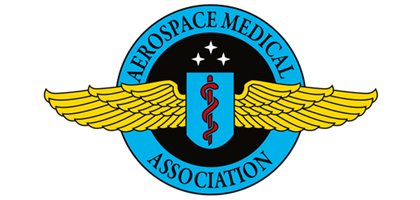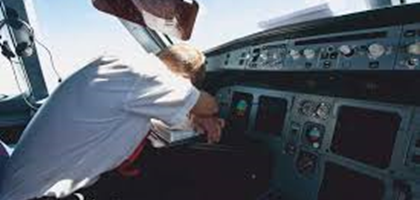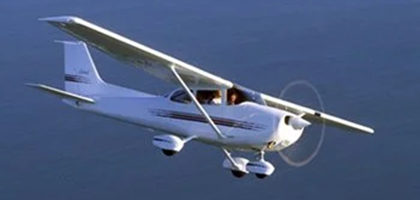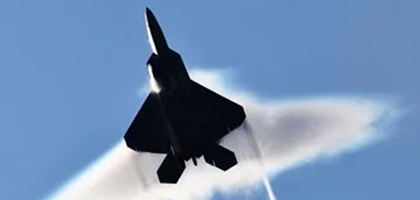About This Journal
The peer-reviewed monthly journal, Aerospace Medicine and Human Performance (AMHP), formerly Aviation, Space, and Environmental Medicine, provides contact with physicians, life scientists, bioengineers, and medical specialists working in both basic medical research and in its clinical applications. It is the most used and cited journal in its field. It is distributed to more than 80 nations.
Aeromedical Concerns About Extended Minimum Crew Operations
Features & Information

Aerospace medicine concerns the determination and maintenance of the health, safety, and performance of persons involved in air and space travel. Aerospace Medicine, as a broad field of endeavor, offers dynamic challenges and opportunities for physicians, nurses, physiologists, bioenvironmental engineers, industrial hygienists, environmental health practitioners, human factors specialists, psychologists, physician assistants, and other professionals. Those in the field are dedicated to enhancing health, promoting safety, and improving performance of individuals who work or travel in unusual environments. The environments of space and aviation provide significant challenges, such as microgravity, radiation exposure, G-forces, emergency ejection injuries, and hypoxic conditions, for those embarking in their exploration. Areas of interest range from space and atmospheric flight to undersea activities. The environments studied cover a wide spectrum extending from the microenvironments of space to the increased pressures of undersea activities. Increased knowledge of these unique environments of “Spaceship Earth” helps aerospace medicine professionals ensure participants are physically prepared, physiologically safe, and perform at the highest levels.

The Aerospace Medical Association (AsMA) is the largest, most representative professional association in the fields of aerospace medicine and human performance. AsMA membership includes aerospace medicine specialists, scientists, flight nurses, physician assistants, physiologists, psychologists, human factors experts, human systems integration experts, and researchers in these fields.
Membership in AsMA provides the following (for full descriptions, see the Benefits page):
- Annual Scientific Meeting
- Continuing Professional Education
- Joint Effort Toward A Universal Goal
- Monthly Professional Journal
- Participation in Committee Action
- Recognition of Peers
- World-Wide Exchange of Ideas

Following a March 27, 2012, incident in which a pilot of a major commercial airline experienced a serious disturbance in his mental health, the Aerospace Medical Association formed an Ad Hoc Working Group on Pilot Mental Health. The working group met several times and analyzed current medical standards for evaluating pilot mental health. The result of the working group was a letter sent to the FAA and other organizations worldwide interested in medical standards. The Committee found that it is neither productive nor cost effective to perform extensive psychiatric evaluations as part of the routine pilot aeromedical assessment. However it did recommend greater attention be given to mental health issues by aeromedical examiners, especially to the more common and detectable mental health conditions and life stressors that can affect pilots and flight performance. They encouraged this through increased education and global recognition of the importance of mental health in aviation safety.

The Aerospace Medical Association (AsMA) publications include the AsMA Bylaws, AsMA Policies & Procedures Manual, a Compendium of Resolutions, Position Papers, and Policy Letters, and Medical Publications for Airline Travel.

General Aviation aircraft present unique Aerospace Medicine and Human Performance problems. Human Performance factors continue to be leading causes of General Aviation mishaps. Aerospace medicine professionals work with General Aviation authorities to ensure appropriate medical standards for GA pilots.

Commercial aviation presents Aerospace Medicine problems for the aircrew, ground support crews, and the passengers they serve. Medical standards for aircrew, managing inflight medical events, recommending medical equipment for onboard emergency medical kits, and coordinating safety features to protect passengers are just a few areas involving Aerospace Medicine experts.

Military aviation operations present numerous unique Aerospace Medicine and Human Performance issues. Sustained acceleration, fatigue, spatial orientation problems, and attention management issues are just a few. Aerospace Medicine professionals work to ensure military aviation personnel meet rigorous medical standards for duty and are properly trained in the unique physiological problems associated with military aviation operations.

Human participation in space operations presents some of the most interesting and challenging Aerospace Medicine and Human Performance problems. Microgravity, bone density and muscle atrophy issues, radiation exposure, and thermal stressors are just some of the space medicine problems. Aerospace Medicine experts working with astronauts and space operations personnel ensure the health, safety, and optimal performance of these space operators.

The ability for humans to perform under extreme environmental conditions poses challenging problems for Aerospace Medicine professionals. High altitude, thermal issues, fatigue, acceleration, and numerous other environmental stressors must be appropriately managed to ensure optimized human performance. Managing the mission environment through technology requires a process of human-centered design and acquisition known as Human Systems Integration.

